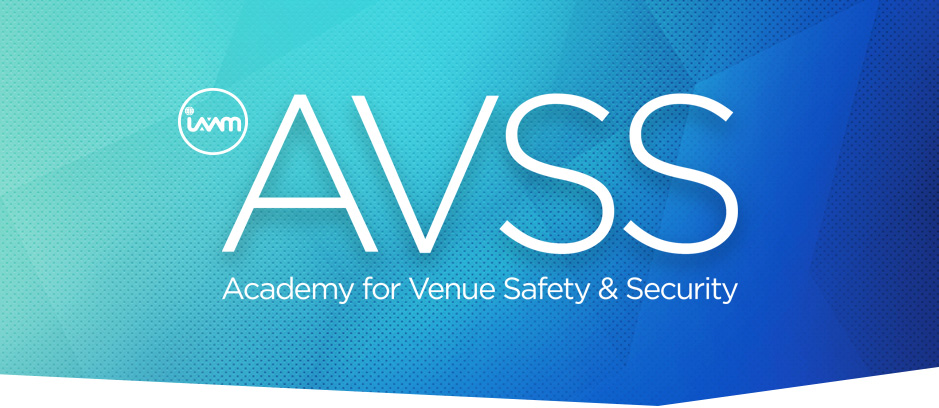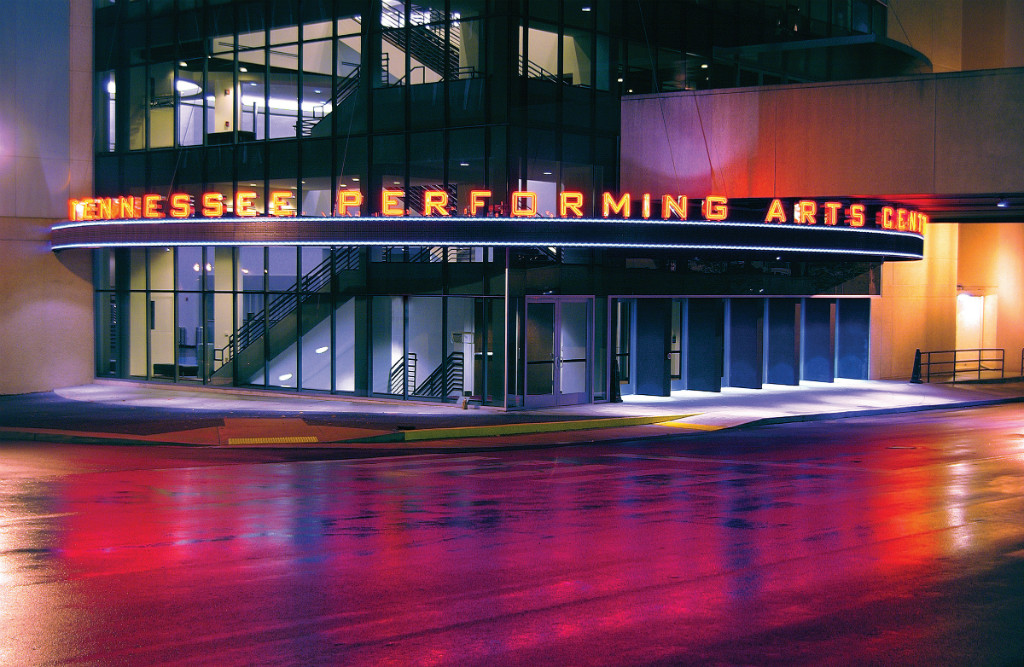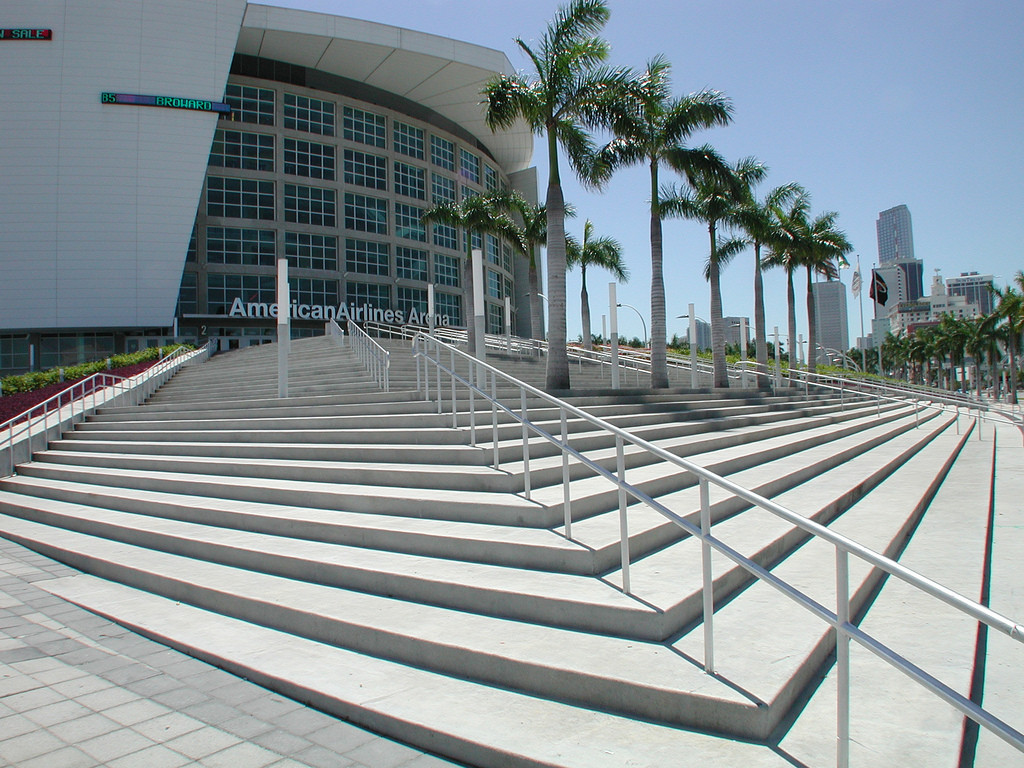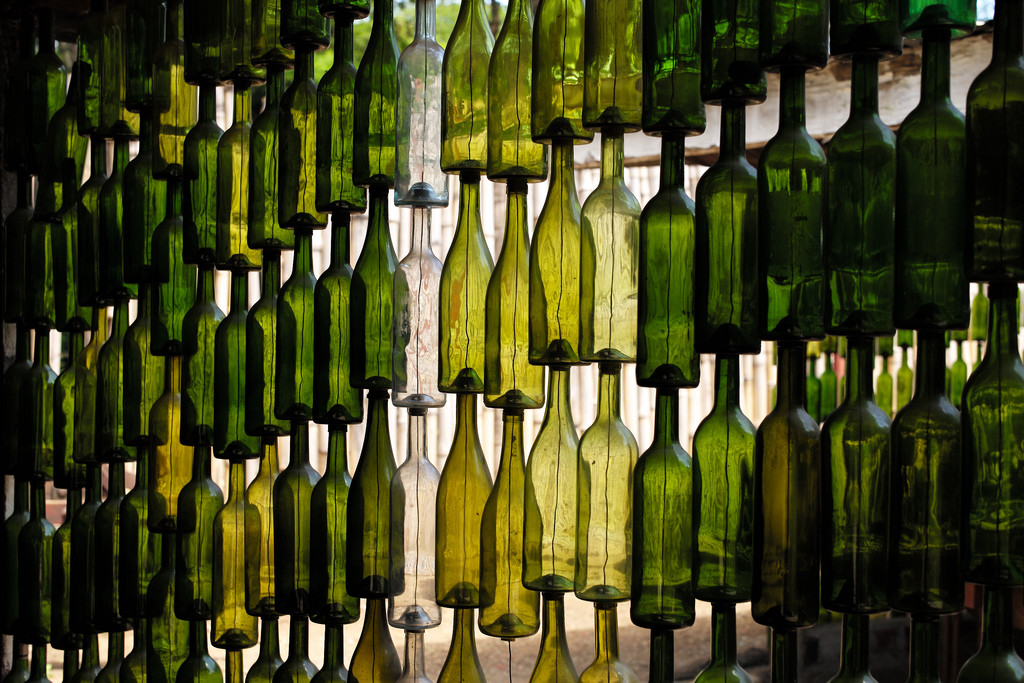Tennessee Performing Arts Center’s Record-Breaking Season
The Tennessee Performing Arts Center (TPAC) created an economic impact of more than $64 million for the Nashville community during its 2013-2014 season. That’s just one of four records the organization broke, according to its annual report. The other three records are
—A new record of $20 million in ticket sales, including tickets to the 2013-14 HCA/TriStar Health Broadway at TPAC season, Broadway specials, TPAC Presents, rentals, and performances of three resident companies: Nashville Ballet, Nashville Opera, and Nashville Repertory Theatre;
—A new record of $1,080,590 in fundraising, including contributions from sponsors, government agencies, corporations, foundations, and individual donors;
—And a new record for food and beverage sales.
The IAVM-member venue also saw growth in audience engagement on 13 social media platforms, volunteer participation, and outreach efforts.
“Like any non-profit charged with delivering mission-based programs, such as arts education and cultural programs, we deal with a fragile financial structure. We strive to manage within our resources, including outside funding and support, to provide exceptional programs and offerings,” said Kathleen O’Brien, TPAC president and CEO. “Sometimes the challenges are great, and we are mindful that not all years deliver this kind of financial result. That is why we’re especially excited to celebrate this record-breaking success, which ultimately benefits the arts and entertainment industry, the state and local economies, education, and communities.”
Performance venues managed by TPAC include the Andrew Jackson Hall, the James K. Polk Theater, the Andrew Johnson Theater, and the War Memorial Auditorium. The economic impact number is based on the nationally accepted formula from Americans for the Arts.
(Image: Rick McBride/TPAC)
AmericanAirlines Arena Achieves LEED Gold Recertification
Congratulations to IAVM member venue AmericanAirlines Arena for achieving LEED Gold recertification from the U.S. Green Building Council (USGBC). The Miami-based arena received its first LEED Silver for Existing Buildings certification in 2009.
“The HEAT Group is very proud to be a leader of the sustainability movement in both our industry and our beloved city,” said Eric Woolworth, president of The HEAT Group’s Business Operations. “Achieving LEED Gold is the fantastic culmination of our ongoing efforts over the past five years to behave in an environmentally responsible way that has a positive effect on our community and our planet.”
Examples of how the venue achieved gold status include ensuring 75 percent of its annual electricity use comes from renewable energy, having a solar reflective roof, and efficient plumbing fixtures, among other items.
“This is an extraordinary act of leadership and stewardship by The HEAT Group,” said USGBC CEO and founding chair Rick Fedrizzi. “Buildings are like people in that both can perform at their peak when they pay attention to their performance every day. It’s that attention to thousands of little details that helped this facility not only match but actually outperform its first certification. That’s a tremendous achievement and we congratulate them.”
(photo credit: locationsite via photopin cc. h/t FFMA)
Sustainability Tip for January
New Year’s Resolution: To be green, or not to be green? That is the question.
According to recent studies, the trend continues to be that it is popular to “be green” in every aspect of business. And not only is it popular, but it is expected. From a recent public opinion poll, “more than 90 percent of Americans say it’s important to recycle, moderate household use of energy, and conserve water” and “three in five Americans say they will make a New Year’s resolution to live a ‘greener’ or more environmentally friendly lifestyle in 2015.”
However, there are more than just a couple of us that may feel guilty about not being sustainable in our personal lives…and we are not alone. Turns out that the corporate VP for McDonald’s still loves to drive his 1960’s Ford Mustang, Sodexo’s VP for corporate social responsibility admits to drinking bottled water, and the program manager of energy efficiency and sustainability for Yahoo! only drinks coffee from disposable paper cups. See this link for some more interesting admissions: http://www.greenbiz.com/article/unsustainable-guilty-pleasures-greenbiz-executive-network
But it is the start of a brand new year, so anything is possible. We on the IAVM Sustainability Committee want to know—what will you resolve to do?
Venue Safety & Security: A Q&A with John Siehl, CFE, and Mark Herrera

IAVM’s Academy for Venue Safety & Security (AVSS) is a two-year school built to train venue and event managers, security professionals, and other key personnel involved in every aspect of venue safety and security. The new 2015 curriculum, developed and taught by a diverse team of experts, is designed to equip each and every attendee with the best practices, resources, and tools needed to face the evolving challenge of providing a safe venue for everyone.
Tremendous collaboration and effort has gone into developing AVSS 2015, and we took a moment to talk with a few people working behind the scenes on this year’s academy.
 John Siehl, CFE
John Siehl, CFE
chief operating officer, VenuWorks
chair, AVSS
With your involvement over the years as an AVSS faculty member and now as the chair, what do you feel is timeless about AVSS, and what do you see evolving to address emerging threats and challenges?
Siehl: AVSS equips the industry professional with information, techniques, and resources that will enhance any position that they progress to in the sports and entertainment industry. The concepts and awareness that are the focus of AVSS are timeless. For many of the attendees, the basic principles are utilized in everyday management, and the ability to plan for the next “legitimate threat” is inherently built into the concepts and curriculum at AVSS. We cannot determine the exact nature of any threat for the future—the key is training, planning, and preparation.
To someone that attended AVSS in the past, what should they know about AVSS 2015?
Siehl: The 2015 AVSS is being approached with a slightly different perspective, as we’ve refined delivery methods while maintaining the content that AVSS has become successful with. Experts from the safety and security industry will continue to present relevant and timely information, techniques, and practices. The curriculum has been thoroughly reviewed and refined with input from faculty and advisory personnel.
Mark Herrera
director of education, IAVM
AVSS 2015 is a story of collaboration. Who has contributed to the focus and curriculum for the Year 1 and Year 2 programs?
Herrera: AVSS 2015 is exploring new territory and has been collaboratively built to meet the current and emerging needs of venue and event professionals involved with safety and security. AVSS is bringing together a collective of experts, each recognized and respected for their expertise in safety and security. Our faculty is simply exceptional, and every 2015 student will experience a great environment to develop and refine skills, discuss critical concepts and issues, and identify best practices to implement. (See the AVSS 2015 faculty.)
As someone with a background in safety and security, what does it mean to you to be a part of such a significant program focused on the safety and security at venues and events?
Herrera: It is a true honor to be a part of a program that supports venue and event professionals in protecting people and infrastructure. My own background in safety and security, and exposure to life-threatening situations, has instilled a passion for supporting a high quality of life, and it is very rewarding to work with the AVSS faculty to ensure that our 2015 students return home much stronger, more self-aware, and better equipped to be leaders when it counts.
Real-Time Interactive Data for Australian Open Attendees
Fans attending this year’s Australian Open have access to real-time interactive data thanks to IBM’s SlamTracker and CrowdTracker.
SlamTracker, already popular with fans, adds player and ball movement data to its wealth of match information.
“Last year, visualization was mentioned in our feedback from customers, and we’ve listened to that feedback to provide a better product,” Tennis Australia CIO, Samir Mahir, told CMO.com.
CrowdTracker (pictured above) is making its debut at the event. It displays content on a Melbourne Park map, enabling fans to better plan their visits.
“Using the GPS on their mobile devices, fans can see where they are on site and what’s going on nearby,” IBM said in a statement. “They can see what are the most popular places to be on the grounds, and they can click on individual courts to get the latest scores, stats, player details, and insights. CrowdTracker helps fans follow the tournament and onsite social buzz, providing fans with the latest Twitter stats, most popular Instagram spots, and what is trending on social media.”
Mahir says this lets fans know of areas that are popular while giving Tennis Australia a great sense of its customers.
“When analytics is combined with a user interface like this, it allows users to be more engaged with the event, but also provides us with intelligence and information that can help us improve that experience too,” Mahir said.
Check out CMO.com for more information on how Tennis Australia and IBM have partnered to create a great guest experience during the tournament.
(Image: IBM)
Do you want to receive a Front Row News weekly digest?
Categories
- Allied (861)
- Architecture (147)
- Arenas (747)
- Career (897)
- Convention Centers (895)
- Education (623)
- Events (1,544)
- Food & Beverage (193)
- Foundation (113)
- Guest Experience (1,496)
- Industry News (2,270)
- Leadership (1,888)
- Marketing (150)
- Membership (2,000)
- Music (213)
- Performing Arts Centers (454)
- Professional Development (409)
- Research (127)
- Safety & Security (442)
- Sports (763)
- Stadiums (608)
- Student (159)
- Technology (516)
- Ticketing (92)
- Touring (82)
- Trends (364)
- Uncategorized (742)
- Universities (218)
- Video (25)
- Young Professional (198)
Twitter Feed
- Twitter feed loading
Recent Posts
- Seattle Convention Center Announces Strategic Leadership Appointment and Growth Initiatives for 2026
- Peggy Daidakis Humbly Made Convention Center History
- Welcome to Our Newest Members
- New Member Benefit! IAVM Partners with Advantage Training to Elevate Staff Readiness and Guest Experience
- Charlotte Convention Center Welcomes Two New Leaders to its Management Team
Categories
- Allied
- Architecture
- Arenas
- Career
- Convention Centers
- Education
- Events
- Food & Beverage
- Foundation
- Guest Experience
- Industry News
- Leadership
- Marketing
- Membership
- Music
- Performing Arts Centers
- Professional Development
- Research
- Safety & Security
- Sports
- Stadiums
- Student
- Technology
- Ticketing
- Touring
- Trends
- Uncategorized
- Universities
- Video
- Young Professional
Archives
- December 2025
- November 2025
- October 2025
- September 2025
- August 2025
- July 2025
- June 2025
- May 2025
- April 2025
- March 2025
- February 2025
- January 2025
- December 2024
- November 2024
- October 2024
- September 2024
- August 2024
- July 2024
- June 2024
- May 2024
- April 2024
- March 2024
- February 2024
- January 2024
- December 2023
- November 2023
- October 2023
- September 2023
- August 2023
- July 2023
- June 2023
- May 2023
- April 2023
- March 2023
- February 2023
- January 2023
- December 2022
- November 2022
- October 2022
- September 2022
- August 2022
- July 2022
- June 2022
- May 2022
- April 2022
- March 2022
- February 2022
- January 2022
- December 2021
- November 2021
- October 2021
- September 2021
- August 2021
- July 2021
- June 2021
- May 2021
- April 2021
- March 2021
- February 2021
- January 2021
- December 2020
- November 2020
- October 2020
- September 2020
- August 2020
- July 2020
- June 2020
- May 2020
- April 2020
- March 2020
- February 2020
- January 2020
- December 2019
- November 2019
- October 2019
- September 2019
- August 2019
- July 2019
- June 2019
- May 2019
- April 2019
- March 2019
- February 2019
- January 2019
- December 2018
- November 2018
- October 2018
- September 2018
- August 2018
- July 2018
- June 2018
- May 2018
- April 2018
- March 2018
- February 2018
- January 2018
- December 2017
- November 2017
- October 2017
- September 2017
- August 2017
- July 2017
- June 2017
- May 2017
- April 2017
- March 2017
- February 2017
- January 2017
- December 2016
- November 2016
- October 2016
- September 2016
- August 2016
- July 2016
- June 2016
- May 2016
- April 2016
- March 2016
- February 2016
- January 2016
- December 2015
- November 2015
- October 2015
- September 2015
- August 2015
- July 2015
- June 2015
- May 2015
- April 2015
- March 2015
- February 2015
- January 2015
- December 2014
- November 2014
- October 2014
- September 2014
- August 2014
- July 2014
- June 2014
- May 2014
- April 2014
- March 2014
- February 2014
- January 2014
- December 2013
- November 2013
- October 2013
- September 2013
- August 2013
- July 2013
- June 2013
- May 2013
- April 2013
- March 2013
- February 2013
- January 2013
- May 2012
- March 2012
- December 2011
- November 2011
- October 2011
Recent Comments
- Frank Bradshaw, Ph.D., CVE on John Meyer, CVE, a Tireless Advocate of Certification for Venue Professionals, Has Died
- Neil Sulkes on Hilary Hartung, Friend to Many in Venue Marketing, Has Left Us
- Jason Parker, CVE on The Devastation of Hurricane Helene and How We Can Support One Another
- Larry Perkins on Touhey Testifies Against Speculative Ticketing Before Congressional Subcommittee
- Peter Secord on Major Players for Planned Elkhart Amphitheater Were in the Mix at VenueConnect





